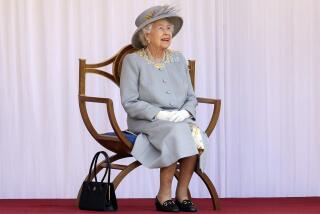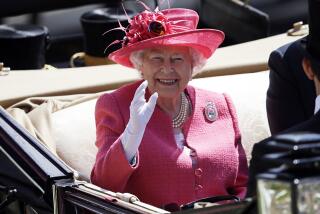Movie review: ‘The Queen of Versailles’ riffs on American dream run amok
“We went to France, and we saw Versailles” is something plenty of people can claim. But the Siegels of Orlando, subjects of the excellent and unexpectedly nuanced documentary “The Queen of Versailles,” turned the royal chateau into the prototype for a dream-house project that would make Mr. Blandings blanch: the biggest single-family home in the United States.
When filmmaker Lauren Greenfield began chronicling the Florida couple in 2007, construction was underway on their 90,000-square-foot tribute to living large. Then the economic meltdown hit, and the billionaire family faced foreclosure, reduced their domestic staff from 19 to four people and transferred their eight kids from private to public schools.
It would be easy to mock their version of hard times, but Greenfield, who filmed the Siegels over a three-year period, is an astute and assiduous observer. What might have been mere reality-TV fodder about hissable symbols of overconsumption turns out to be a three-dimensional study of a marriage.
It’s also a timely look at the middle-class American Dream on hyperdrive: aspire, acquire, arrive and then try to keep the “good life” going.
That life is often ridiculous, if not downright revolting. There are the boats, private jets and furs, the statuary, busts and kitschy-heroic family portraits. The Siegels’ story contains all the elements for broad satire, beginning with the 30-year age difference between time-share mogul David and third-wife Jackie.
There’s more than a touch of the subprime to his enterprise, and she’s a former beauty queen whose blond, tanned, Botoxed and flamboyantly implanted looks belie her down-to-earth warmth. She’s a cartoon trophy wife in middle age, but also the even-tempered manager of a bustling household.
The Siegels are up-by-the-bootstraps types, not heirs to fortune, and “Versailles” doesn’t reduce them to caricatures. David may claim to be a kingmaker (of one president in particular) and conducts some of his interviews in a gilded throne, but his real seat of power is the cluttered den where he watches TV while sorting through paperwork — like many a suburban dad.
In Greenfield’s canny and compassionate view, their post-collapse reality check is an emblem of consumerism as affliction, and surprisingly relatable.
More to Read
Only good movies
Get the Indie Focus newsletter, Mark Olsen's weekly guide to the world of cinema.
You may occasionally receive promotional content from the Los Angeles Times.










